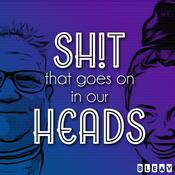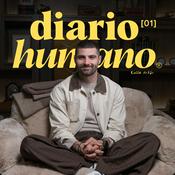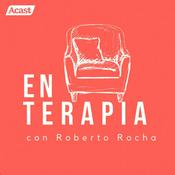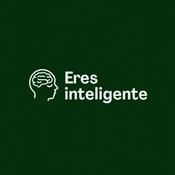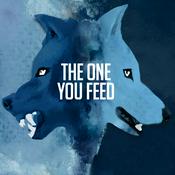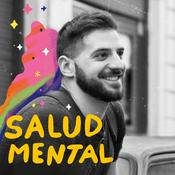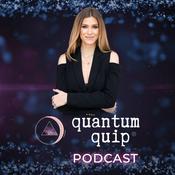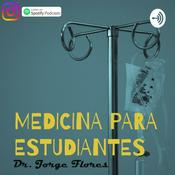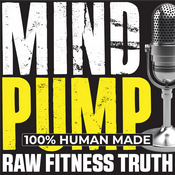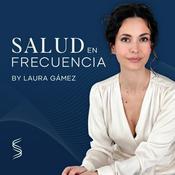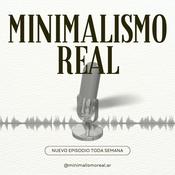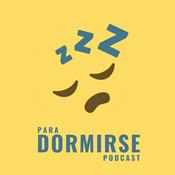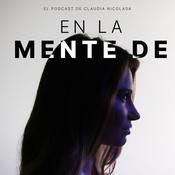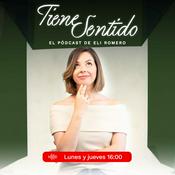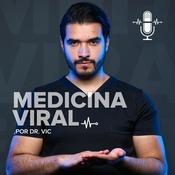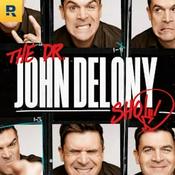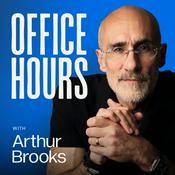From Our Neurons to Yours
Wu Tsai Neurosciences Institute at Stanford University, Nicholas Weiler
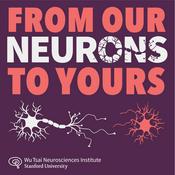
Último episodio
71 episodios
Why do our minds wander? What the brain's default mode tells us about our humanity | Vinod Menon
12/2/2026 | 48 minHere’s a question for you that may at first seem trivial, but is actually profound: Why do our minds drift?
If you have ever dabbled in mindfulness or meditation, you know this mind wandering has an almost gravitational pull. In fact, researchers now think we spend as much as 50 percent of our waking time in this state, which cognitive scientists have dubbed the brain’s “default mode.”
Today’s guest is Vinod Menon. He’s a giant in the field of cognitive science who played a central role in defining the brain “default mode network” back in 2003.
In our conversation, he argues our tendency to daydream may be at the core of our self-identities, our creativity – and also many of our most troubling psychiatric disorders, from Alzheimer’s to ADHD.
Vinod Menon is Rachel L. and Walter F. Nichols, MD., Professor of Psychiatry & Behavioral Science at Stanford Medicine, and an affiliate of the Wu Tsai Neurosciences Institute.
Learn More
Menon's "Stanford Cognitive & Systems Neuroscience Laboratory"
Stanford Medicine study identifies distinct brain organization patterns in women and men (Stanford Medicine, 2024)
Children with autism have broad memory difficulties, Stanford Medicine-led study finds (Stanford Medicine, 2023)
Interactions between attention-grabbing brain networks weak in ADHD (Stanford Medicine, 2015)
Send us a text!
Thanks for listening! If you're enjoying our show, please take a moment to give us a review on your podcast app of choice and share this episode with your friends. That's how we grow as a show and bring the stories of the frontiers of neuroscience to a wider audience.
We want to hear from your neurons! Email us at at [email protected]
Learn more about the Wu Tsai Neurosciences Institute at Stanford and follow us on Twitter, Facebook, and LinkedIn.Is Alzheimer's an energy crisis in the brain? Inflammation, metabolism and a new path in the search for cures | Kati Andreasson
18/12/2025 | 42 minFor decades, Alzheimer's research has focused on clearing amyloid plaques from the brain. But new drugs that successfully remove plaques have proven clinically "underwhelming", leaving the field searching for alternative approaches.
Stanford neurologist Katrin Andreasson has spent twenty years pursuing a different path—investigating how aging triggers an energy crisis in the brain's immune and support cells. Her work reveals that inflammation and metabolic dysfunction in microglia and astrocytes may be the real drivers of Alzheimer's pathology.
Most remarkably, her recent research—supported by the Knight Initiative for Brain Resilience here at the Wu Tsai Neurosciences Institute—shows that targeting inflammation in the peripheral immune system—outside the brain entirely—can restore memory in mouse models of the disease.
While human trials are still needed, Andreasson's findings offer fresh hope and demonstrate the critical importance of supporting curiosity-driven science, even when it challenges prevailing dogma.
Learn More:
Alzheimer's Association honors Katrin Andreasson
Research links age-related inflammation, microglia and Alzheimer’s Disease
Q&A: How the aging immune system impacts brain health
Rethinking Alzheimer's: Could it begin outside the brain?
Why new Alzheimer's drugs may not work for patients
Parkinson’s comes in many forms. New biomarkers may explain why.
Send us a text!
Thanks for listening! If you're enjoying our show, please take a moment to give us a review on your podcast app of choice and share this episode with your friends. That's how we grow as a show and bring the stories of the frontiers of neuroscience to a wider audience.
We want to hear from your neurons! Email us at at [email protected]
Learn more about the Wu Tsai Neurosciences Institute at Stanford and follow us on Twitter, Facebook, and LinkedIn."The Emergent Mind: How Intelligence Arises in People and Machines" | Jay McClelland
26/11/2025 | 39 minThe AI revolution of the past few years is built on brain-inspired neural network models originally developed to study our own minds. The question is, what should we make of the fact that our own rich mental lives are built on the same foundations as the seemingly soulless chat-bots we now interact with on a daily basis?
Our guest this week is Stanford cognitive scientist Jay McClelland, who has been a leading figure in this field since the 1980s, when he developed some of the first of these artificial neural network models. Now McClelland has a new book, co-authored with SF State University computational neuroscientist Gaurav Suri, called "The Emergent Mind: How Intelligence Arises in People and Machines."
We spoke with McClelland about the entangled history of neuroscience and AI, and whether the theory of the emergent mind described in the book can help us better understand ourselves and our relationship with the technology we've created.
Learn More
New book sheds light on human and machine intelligence | Stanford Report
How Intelligence – Both Human and Artificial – Happens | KQED Forum
From Brain to Machine: The Unexpected Journey of Neural Networks | Stanford HAI
Wu Tsai Neuro's Center for Mind, Brain, Computation and Technology
McClelland, J. L. & Rumelhart, D. E. (1981). An interactive activation model of context effects in letter perception: Part 1. An account of basic findings. Psychological Review, 88, 375-407. [PDF]
Rumelhart, D. E., McClelland, J. L., & the PDP research group. (1986). Parallel distributed processing: Explorations in the microstructure of cognition. Volumes I & II. Cambridge, MA: MIT Press.
McClelland, J. L. & Rogers, T. T. (2003). The parallel distributed processing approach to semantic cognition. Nature Reviews Neuroscience, 4, 310-322. [PDF]
McClelland, J. L., Hill, F., Rudolph, M., Baldridge, J., & Schuetze, H. (2020). Placing language in and integrated understanding system: Next steps toward human-level performance in neural language models. Proceedings of the National Academy of Sciences, 117(42), 25966-25974. [
Send us a text!
Thanks for listening! If you're enjoying our show, please take a moment to give us a review on your podcast app of choice and share this episode with your friends. That's how we grow as a show and bring the stories of the frontiers of neuroscience to a wider audience.
We want to hear from your neurons! Email us at at [email protected]
Learn more about the Wu Tsai Neurosciences Institute at Stanford and follow us on Twitter, Facebook, and LinkedIn.- Imagine what it’s like to lose your ability to speak. You know what you want to say, but the connection between your brain and the muscles that form words is no longer functioning. For people with conditions like ALS, or who experience a severe stroke, this is a devastating reality.
Today's guest is Erin Kunz, a postdoctoral researcher in the Neural Prosthetics Translational Laboratory at Stanford, who is part of a global community of scientists working towards the vision of a brain–computer interface — or BCI — to bypass those broken circuits and restore the ability to speak to people with paralysis.
We discuss how these BCIs work and the inspiring progress the tech has made in recent years, as well as the troubling question of whether a technology designed to decode what people intend to say from their brain activity could one day read out thoughts they never intended to communicate?
Learn More
Study of promising speech-enabling interface offers hope for restoring communication (Stanford Medicine, 2025)
For Some Patients, the ‘Inner Voice’ May Soon Be Audible (The New York Times, 2025)
These brain implants speak your mind — even when you don't want to (NPR, 2025)
A mind-reading brain implant that comes with password protection(Nature, 2025)
How neural prosthetics could free minds trapped by brain injury(From Our Neurons to Yours, 2024)
Brain implants, software guide speech-disabled person’s intended words to computer screen (Stanford Medicine, 2023)
Software turns ‘mental handwriting’ into on-screen words, sentences (Stanford Medicine, 2021)
Send us a text!
Thanks for listening! If you're enjoying our show, please take a moment to give us a review on your podcast app of choice and share this episode with your friends. That's how we grow as a show and bring the stories of the frontiers of neuroscience to a wider audience.
We want to hear from your neurons! Email us at at [email protected]
Learn more about the Wu Tsai Neurosciences Institute at Stanford and follow us on Twitter, Facebook, and LinkedIn. NeuroForecasting: how brain activity can predict stock prices or viral videos | Brian Knutson
30/10/2025 | 40 minNeuroscientists have spent the past few decades tracing the network of brain systems—some deep and emotional, and others more analytical and deliberate— that work together as we make tough choices like where to invest our money as well as more everyday decisions like which videos to watch online—or, for that matter, which podcast to listen to.
You can imagine that the ability to listen in on the brain systems that guide our choices might start to let scientists predict our decisions. But today's guest has taken this a step further, showing that measuring brain activity in just a few individuals can actually forecast widespread social behaviors, like which stock prices are likely to go up or down on the market, or which videos are likely to go viral.
Join us as we talk with Brian Knutson, a professor of psychology in Stanford's School of Humanities and Sciences, about the frontiers of neuroeconomics, bridging psychology, economics, and neuroscience.
Learn More
SPANlab (Symbiotic Project on Affective Neuroscience)
NeuroChoice: Eight years of forging connections to illuminate and empower choice (Wu Tsai Neurosciences Institute, 2024)
Brain imaging links stimulant-use relapse to distinct nerve pathway (Wu Tsai Neurosciences Institute, 2022)
Brain activity data may improve stock market forecasts, study shows (The Guardian, 2021)
Your brain knows whether a video will go viral online (Stanford Report, 2020)
Odds are good that risky gambling choices are influenced by a single brain connection, Stanford research shows (Stanford Report, 2016)
Smile boosts chances of getting a microloan, say Stanford psychologists (Stanford Report, 2015)
Stanford scientists see how the brain makes environmental decisions (Stanford Report, 2015)
Send us a text!
Thanks for listening! If you're enjoying our show, please take a moment to give us a review on your podcast app of choice and share this episode with your friends. That's how we grow as a show and bring the stories of the frontiers of neuroscience to a wider audience.
We want to hear from your neurons! Email us at at [email protected]
Learn more about the Wu Tsai Neurosciences Institute at Stanford and follow us on Twitter, Facebook, and LinkedIn.
Más podcasts de Salud y forma física
Podcasts a la moda de Salud y forma física
Acerca de From Our Neurons to Yours
This award-winning show from Stanford’s Wu Tsai Neurosciences Institute is a field manual for anyone who wants to understand their own brain and the new science reshaping how we learn, age, heal, and make sense of ourselves.Each episode, host Nicholas Weiler sits down with leading scientists to unpack big ideas from the frontiers of the field—brain-computer interfaces and AI language models; new therapies for depression, dementia, and stroke; the mysteries of perception and memory; even the debate over free will. You’ll hear how basic research becomes clinical insight and how emerging tech might expand what it means to be human. If you’ve got a brain, take a listen.
Sitio web del podcastEscucha From Our Neurons to Yours, VE A TERAPIA y muchos más podcasts de todo el mundo con la aplicación de radio.net

Descarga la app gratuita: radio.net
- Añadir radios y podcasts a favoritos
- Transmisión por Wi-Fi y Bluetooth
- Carplay & Android Auto compatible
- Muchas otras funciones de la app
Descarga la app gratuita: radio.net
- Añadir radios y podcasts a favoritos
- Transmisión por Wi-Fi y Bluetooth
- Carplay & Android Auto compatible
- Muchas otras funciones de la app


From Our Neurons to Yours
Escanea el código,
Descarga la app,
Escucha.
Descarga la app,
Escucha.



